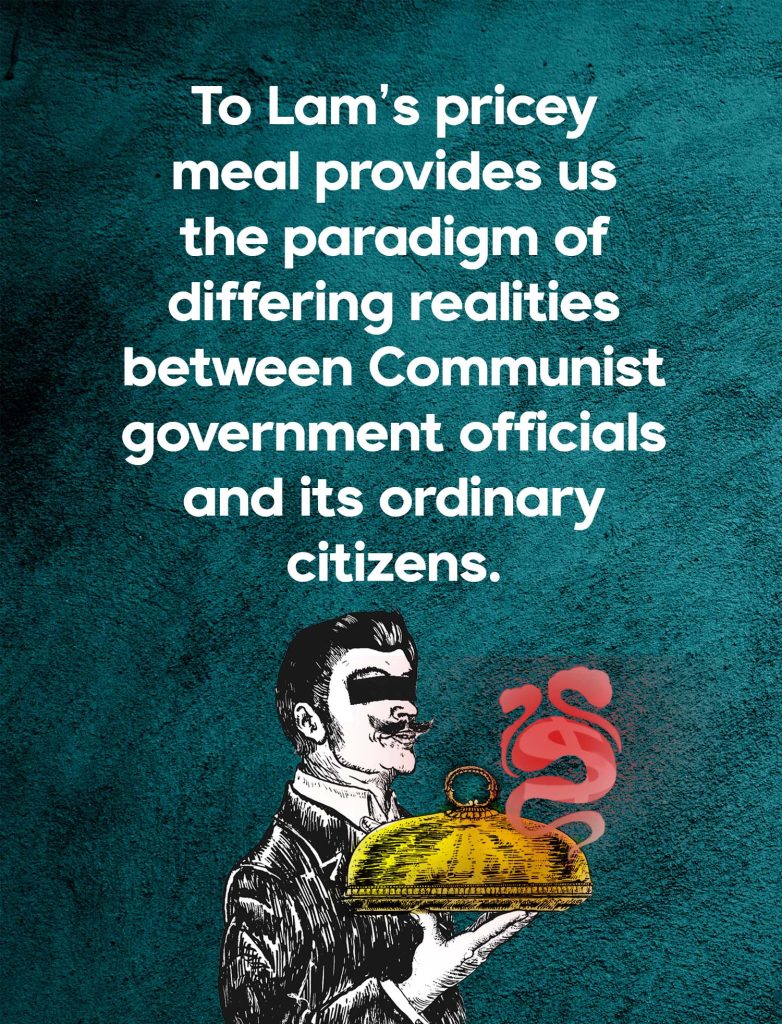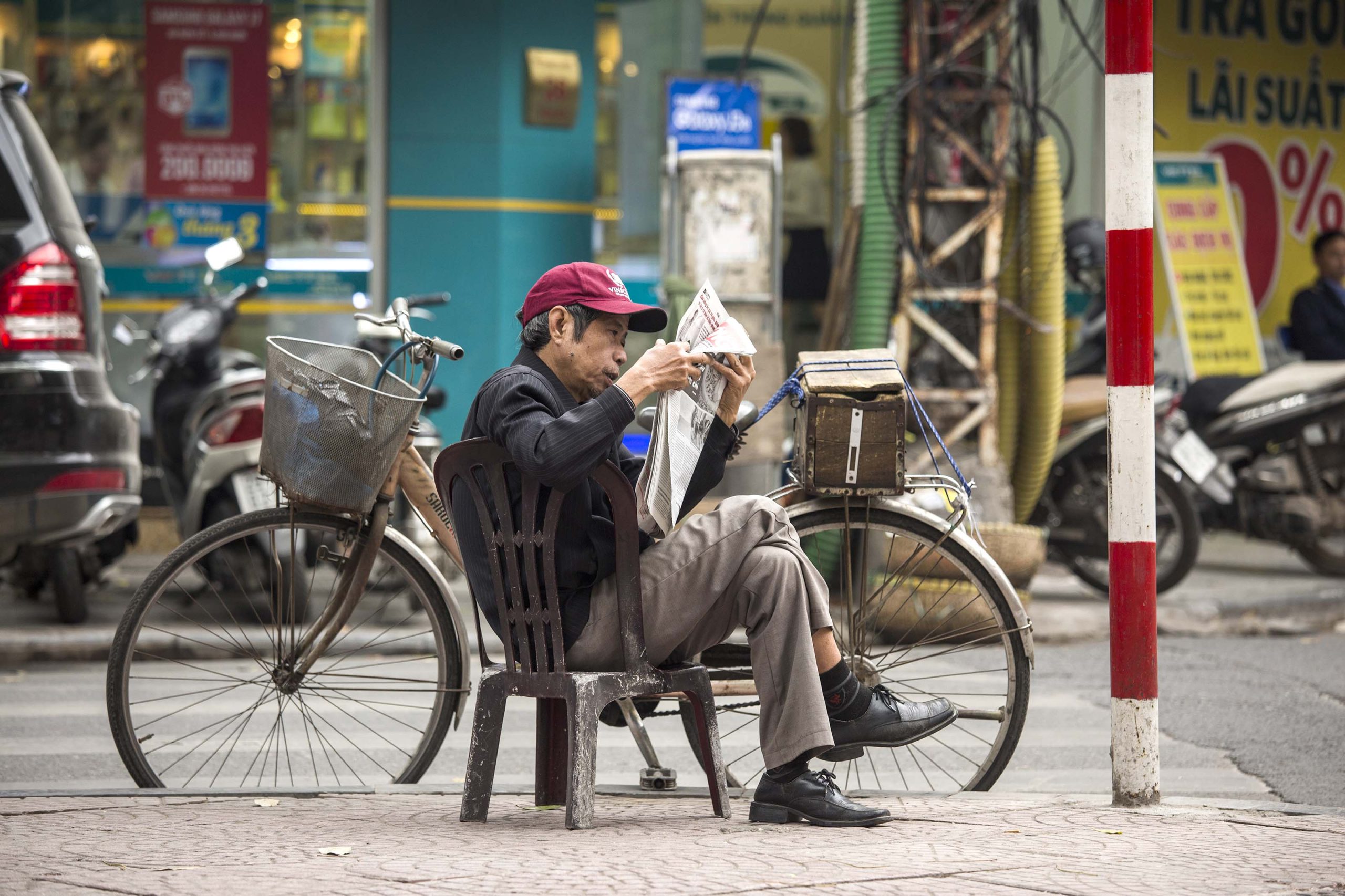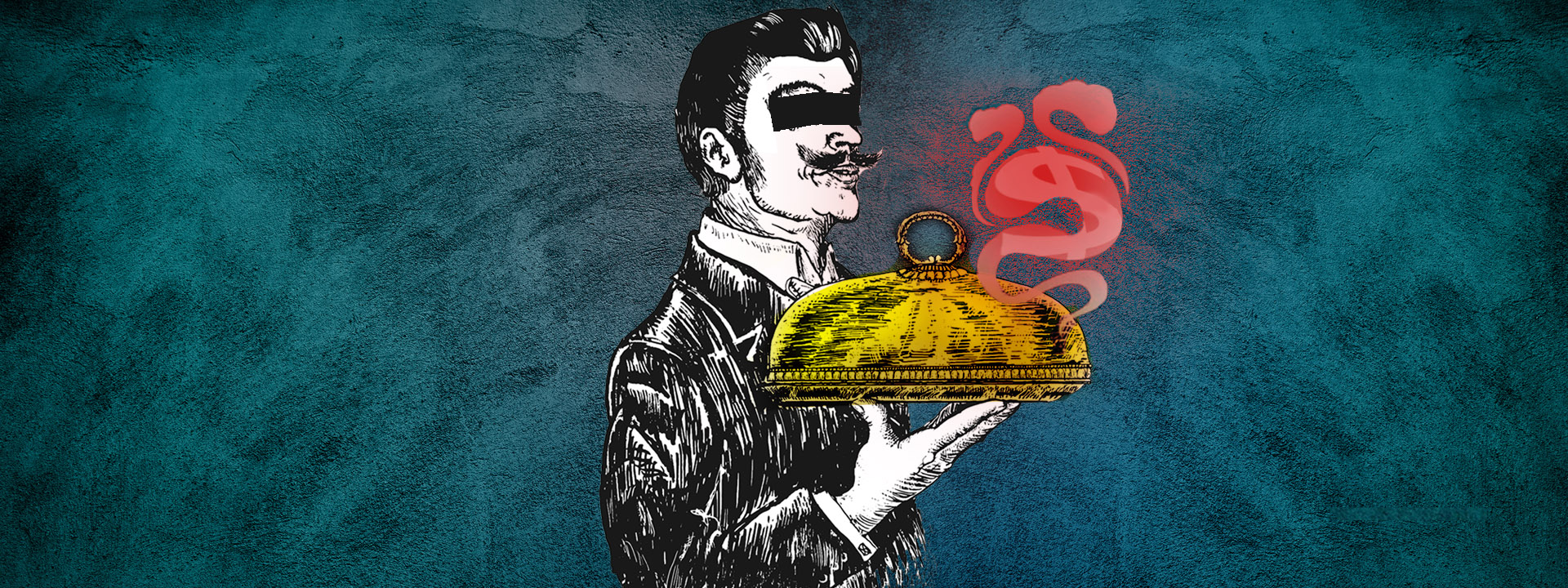Vietnamese social media was flooded early this month with images and footage of Minister of Public Security To Lam and his delegates enjoying a luxurious dinner at an upscale restaurant in London.
The video, showing General Lam being hand-fed a gold-leaf steak by the Turkish celebrity chef Nusret Gokce, popularly known as Salt Bae, immediately attracted public attention before soon being removed from the chef’s TikTok account.
Across the internet, media users in Vietnam expressed their criticism and anger at the lavish lifestyle of the Vietnamese Communist Party’s top officials.
While some users posed questions regarding the restaurant’s costly dinner bill and To Lam’s modest monthly salary as a government official, many other users were outraged because the luxurious dinner was held at a time when Vietnam’s economy is still feeling the impact of the COVID-19 pandemic. Strict lockdown measures to prevent the spread of the coronavirus have caused many Vietnamese people to experience food shortages and overwhelmed the country’s health care capacity.

As Vietnamese citizens continue to struggle with COVID-19, Minister of Public Security To Lam was caught on camera eating a pricey steak flecked with gold. (Photo collage by The Vietnamese)
However, To Lam’s pricey meal provides us the paradigm of differing realities between Communist government officials and its ordinary citizens, but it also exposes the underlying problems that Vietnam is inherently facing as a country where civil rights suppression and corruption are prevalent.
Lack of oversight
It was still unclear whose money was used to pay for the dinner bill. Still, many observers alleged that it was paid by the backyard companies with close business links to Vietnam’s Ministry of Public Security.
Corruption and fiscal mismanagement are significant problems in the Communist country’s governance system.
According to the 2020 Corruption Perception Index of Transparency International, a nongovernmental coalition promoting transparency and ending corruption, Vietnam was ranked 104 out of 180 countries.
Meanwhile, the Ministry of Public Security, which controls the national police force and agencies tasked with suppressing dissent and investigating corruption cases, is nevertheless seen as the most corrupt ministry in the opinion of the Vietnamese people. According to a report titled “Vietnam Corruption Barometer 2019,” published by Towards Transparency, a local nonprofit organization and a coordinator for Transparency International, which helps raise awareness of corruption issues in Vietnam.

In reality, Vietnamese apparatchiks have their ways to conceal illicit wealth without being scrutinized by the public.
One of the most common methods adopted by Vietnamese Communist Party officials is to use “nominees,” who can be their relatives or hired people, to hold assets on their behalf, or to set up “backyard companies,” which can be used to gain “unfair business advantages” and “exclusive access to business opportunities,” according to Le Hong Hiep, a coordinator of the Vietnam Studies Programme at ISEAS, the Yusof Ishak Institute in Singapore.
Moreover, the absence of an independent press and lack of an active civil society in Vietnam make it even easier for these officials to shield their illicit assets from public scrutiny, writes Hiep.
The country also lacks formal mechanisms to verify the asset declarations of officials, who are required to file these, says Hiep, adding that corrupt officials can use hired nominees or “backyard companies” to evade financial inspections by local authorities.
An unfree press
At the same time, Vietnam does not have an independent media environment that carries out investigations into the government’s wrongdoings and holds these corrupt officials accountable for their alleged misconduct.
The public in Vietnam only learns about these issues via social media and Vietnamese language services of nongovernmental newspapers such as Radio Free Asia and BBC. Meanwhile, state-owned media and government mouthpieces remain silent about such issues, as observed by The Vietnamese Magazine.
Nonetheless, according to public opinion, the exposed luxurious dinner is just the tiny tip of a giant hidden iceberg.
In most cases, the corruption of Vietnamese government officials is only brought to light thanks to investigation projects by foreign media agencies or the infighting between the conflicting groups within the Communist Party. This infighting is only a direct result of the crusade of political purge camouflaged as the vigorous anti-corruption campaign initiated by the Party’s chief Nguyen Phu Trong.
Late last year, an investigative unit of Qatari-based Al Jazeera revealed in a leaked document called “The Cyprus Papers” that Vietnamese Congress member Pham Phu Quoc allegedly bought so-called “golden passports” from Cyprus between 2017 and 2019.
According to Al Jazeera, the purchased passports are worth “a minimum investment of $2.5M” each. The Cyprus passport scheme itself is easily abused by political figures “vulnerable to corruption” to gain EU citizenship legally, the investigative report concludes. It was not clear how the Vietnamese congressman acquired the amount of money needed to buy his foreign citizenship, just like who had paid for the gold-flaked steak of General To Lam remained a mystery.

As government wrongdoings are not reported in mainstream media, Vietnamese citizens learn about these issues through social media and nongovernmental news sites such as Radio Free Asia and BBC.
Reporting on corruption remained a dangerous task for Vietnam’s media. Recently, members of the Bao Sach (Clean News) organization were arrested and subsequently imprisoned for shedding light on the misdeeds of many corrupt Vietnamese officials. Even journalists working for state-run media who sway from the Party’s guidelines by reporting government mismanagement and corruption face constant harassment or even long jail terms.
With no independent journalism in the country, and the distribution of information strictly regulated with state media only parroting government propaganda, ordinary Vietnamese people cannot seek impartial and unbiased reports or demand the transparency of government officials. Vietnamese citizens can only rely on unofficial sources of information on social media, which are often prone to fake news, or investigations by foreign media which help uncover the misconduct of their state leaders.
Unless Vietnam develops an independent press, a vigorous civil society, and democratic and effective institutions that monitor government leaders regardless of their political affiliates, its public will remain in the dark. Most of all, the citizens will be unaware of other countless opulent feasts that go unexposed in the future. ●
This article was first published by The Vietnamese on November 12, 2021, and is being republished here by the Asia Democracy Chronicles with their permission.



















